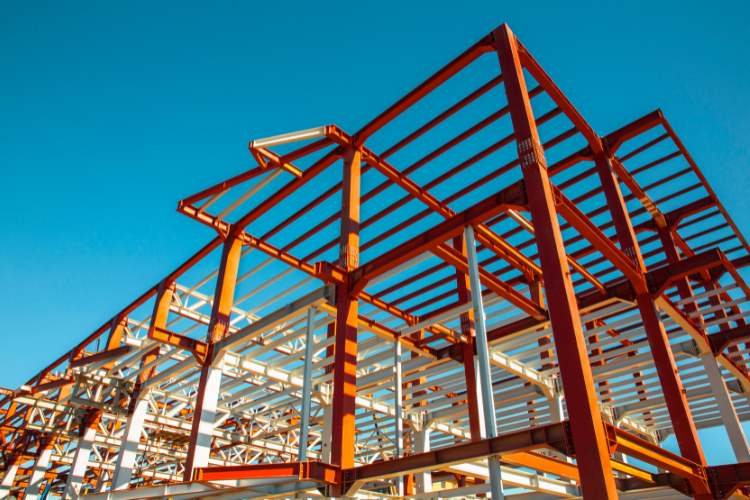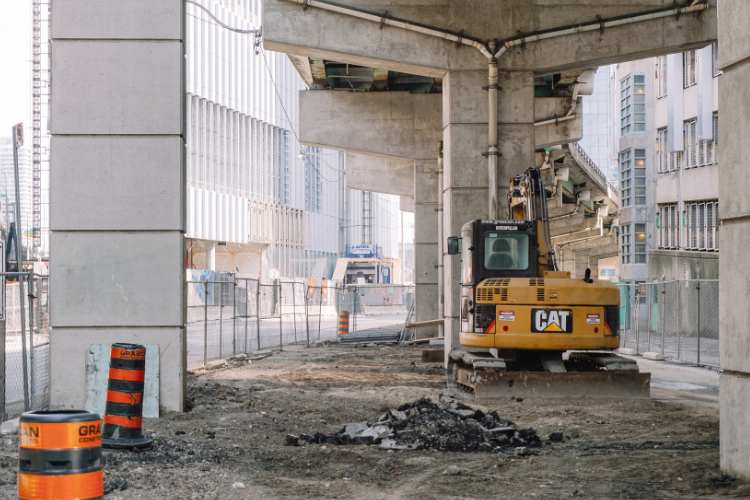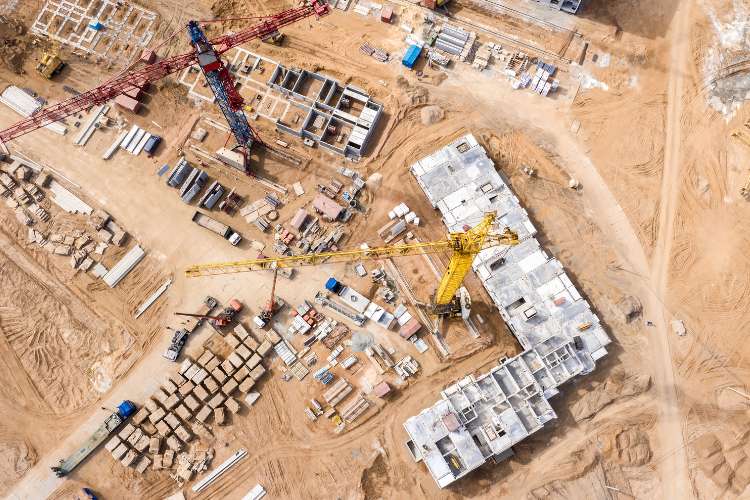Material suppliers are the last in line to get paid on any construction project, even behind subcontractors. They aren’t thrilled about their obligation to offer payment terms, but they do it anyway, because they know that subs consider terms essential. And because they’re last to get paid, anything you can do to nurture your relationship and minimize their risk will be advantageous on all sides. This can ultimately help you get better deals on materials. In this article, we’ll explore why price negotiation can be so tricky, and some of the best ways to get better deals.
Table of Contents
Why the Material Supply Industry Makes Price Negotiation Difficult for Subcontractors
Manufacturer-Set Pricing
One of the biggest issues facing contractors is the gradual, reliable increase in construction material pricing. The pricing volatility we saw during the pandemic has calmed down, but it’s still marked by noticeable, consistent increases. Unfortunately, you have minimal leverage to negotiate these costs, because the suppliers themselves don’t have that much leverage. This is because the supplier you negotiate with on material pricing is not the one setting the prices. They are buying at rates set by manufacturers, so when a manufacturer tells them that the price is doubling on their next order, the supplier doesn’t have many options other than raising the price. All competing construction suppliers are in the same boat. You may be able to get a few bucks knocked off your pricing from one supplier to another, but manufacturers are the ones setting prices.
So while material pricing will fluctuate based on the time of purchase, you should expect to see very little fluctuation between supplier’s pricing at any given moment.
The Inability to Get Price Locks
Price locks are vital in an industry with such long project timelines. The material quote you get today could be dwarfed by the price of materials by the time you actually need them. That, of course, is why price locks are so appealing. A lot of suppliers used to lock in pricing for customers if they were able to pay for materials in advance, but the industry is changing.
In the last few years, manufacturers started sending “open purchase orders” to construction suppliers. An open purchase order means that the pricing isn’t set and depends on shipping dates. This means that when a supplier purchases materials, they don’t even know how much it will cost until closer to the shipping date. Since suppliers still need to limit their risk when selling materials, they can’t give subcontractors accurate pricing information either.
When this is the case, do you have the ability to get a better price? You do, and here’s how.
How to Get Better Pricing on Construction Materials
This advice is based on things you as a subcontractor can control. These are actions that you can take tomorrow to get better pricing on materials from your construction suppliers.
Discounts Based on Volume & Relationships
If you are always shopping around for the best bid, you may be hurting yourself more than helping. As you build relationships with construction suppliers and increase your order volumes, they are much more likely to extend favorable payment terms, offer discounts, and help you source materials faster than your competitors. Sometimes working with 1-2 suppliers more regularly is better than working with the lowest bidder among 6-10 different suppliers.
Discounts Based on Risk
Suppliers give discounts to subcontractors who seem less risky. After enduring long waits for the sub to get paid, the supplier is the last in line to get paid themselves. When we spoke with Tony Gonzales, Vice President of ASR Materials, he agreed, saying that discounts on materials largely come down to suppliers being able to “use a discount as leverage to mitigate financial risk to their organization.” Subs with a low risk of non-payment get discounts more often.
However, it’s not just about discounts: The less financial risk you, as a subcontractor, present to a supplier the more likely you are to:
- Have your terms extended
- Have increased material allocations from suppliers
- Create better relationships with your suppliers
That said, being a low-risk sub in an industry with notoriously long payment timelines (that almost always exceed supplier term lengths) is tough. Your risk profile depends, in part, on your ability to get paid for projects quickly and manage your finances with laser-like precision.
A few things you can do to minimize your risk are:
- Define your “bread & butter” projects. Which GCs and what kind of work pays the best, that you are also the best at, without question? Actively prioritize these projects to minimize risk.
- Establish a militant process for how you will address late payments, with different actions you’ll take at certain milestones in the late payment timeline (i.e. 30 days, 60 days, 90 days). That way, you have a plan in place for how you will escalate your response to non-payment. This is something you can be upfront with the GC about as well, so that they know you mean business.
The Single Best Way to Limit Risk and Secure Discounts with a Construction Supplier: Material Financing
The best thing you can offer suppliers is an ironclad guarantee that you will pay them on time, every time. That either means regularly paying within 30 days or less, or paying them in full and upfront.
Paying upfront is often the best scenario, but it also eats into your available capital. This is why options like material financing exist, and why it’s arguably the best way for you to pay your suppliers.
How Does Material Financing Work?
- A third party, like Billd, pays your supplier upfront on your behalf, leaving your cash reserves untouched.
- If the supplier offers any discounts for cash payments, then you secure that % off simply by using Billd.
- Instead of the supplier’s 30-day payment timeline, Billd gives you up to 120 days to repay them.
- The financing charges associated with Billd can be easily calculated and added into any bid.
- When the GC finally pays you, typically within 57 days of submitting your pay app, you’ll have had plenty of time to wait for that payment to come through.
- Your cash flow is protected from the strain of large material purchases, while still getting to score thousands of dollars in supplier discounts.
Material financing allows you to use your working capital more efficiently than just relying on what you have in the bank. It also adds to your toolkit of working capital options. As a sub, you want to have multiple forms of capital. This helps you run your business more efficiently and can make you more reliable, not only to suppliers, but to GCs as well.
Every aspect of getting better deals on construction materials revolves around limiting your perceived risk to a material supplier. If you want better deals on materials, build a strong relationship with your suppliers by paying them upfront and in full.









